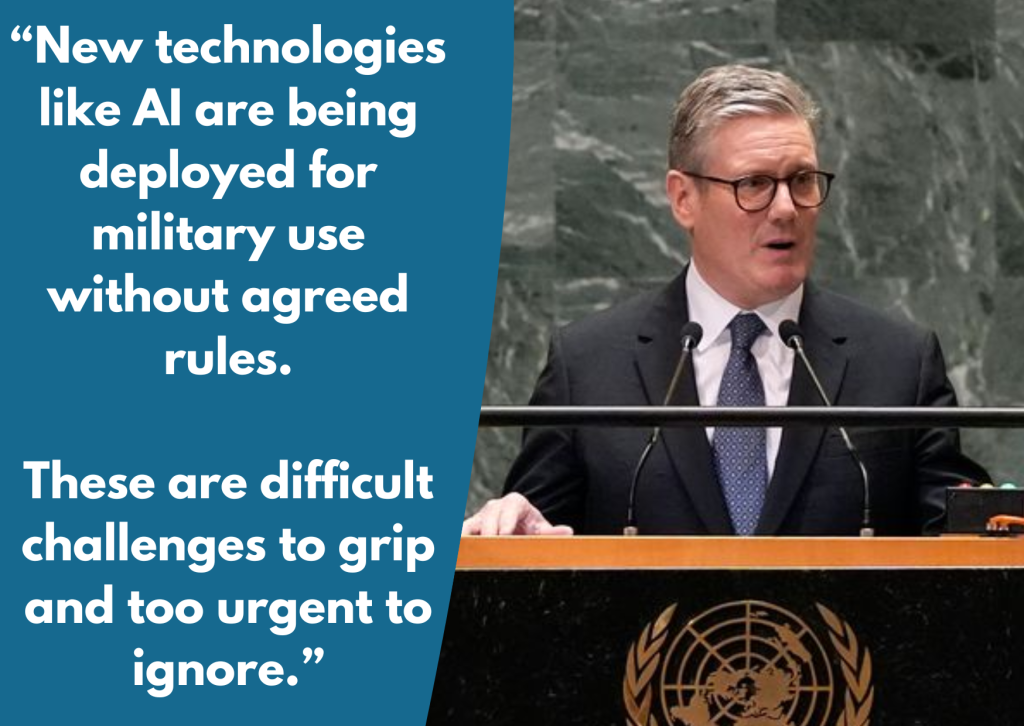
In the last 12 months, there have been reports of the use of Autonomous Weapon Systems (AWS) in Ukraine, as well as of growing us of and AI-powered military tools such as ‘decision support systems,’ which have been linked to devastating harm to civilians in Gaza.” Despite this being the reality of modern warfare, there are currently no specific international rules governing AWS and military AI. This situation is so urgent that Prime Minister Keir Starmer used his maiden speech at the General Assembly to highlight the threat of new technologies being deployed by militaries without agreed international rules and the need to get to grips with this urgent challenge govern their use.
Keir Starmer’s speech aligns the UK more closely with last year’s call from the UN Secretary-General António Guterres, who urged states to negotiate a treaty on AWS by 2026. There is wide support for such a treaty from Europe, the Global South, and some NATO members. However, historically, the UK has been opposed to such a treaty. The Prime Minister’s remarks are the first signs that the UK may be shifting its position in support of such a treaty.
Under the last government, the UK maintained the view that current international law, such as the Convention on Certain Conventional Weapons (CCW), was “wholly sufficient,” and that a new legal framework was unnecessary. As a result, the UK remained one of only a handful of states to oppose such a treaty. With deadlock in the CCW, largely caused by Russia effectively vetoing progress, the most promising avenue is a treaty at the General Assembly.
With the Prime Minister raising the alarm at new technologies being used in conflict without internationally agreed rules, recognising the urgent need to get to grips with this, and emphasising his commitment to stand up for international law, it is hard to see a step that would align more closely with the priorities he set out in his UNGA speech than now supporting the negotiation of a new treaty to regulate autonomous weapons systems.
There is real urgency, but also a lot of opportunity, right now to act in global partnership on this issue, with the majority of the world’s countries, the UN Secretary-General and the International Committee of the Red Cross supporting a new treaty.
It is time for the new Labour government to acknowledge this and support the negotiation of a legally binding framework. As the Prime Mister stated this challenge is now “too urgent to ignore.”
